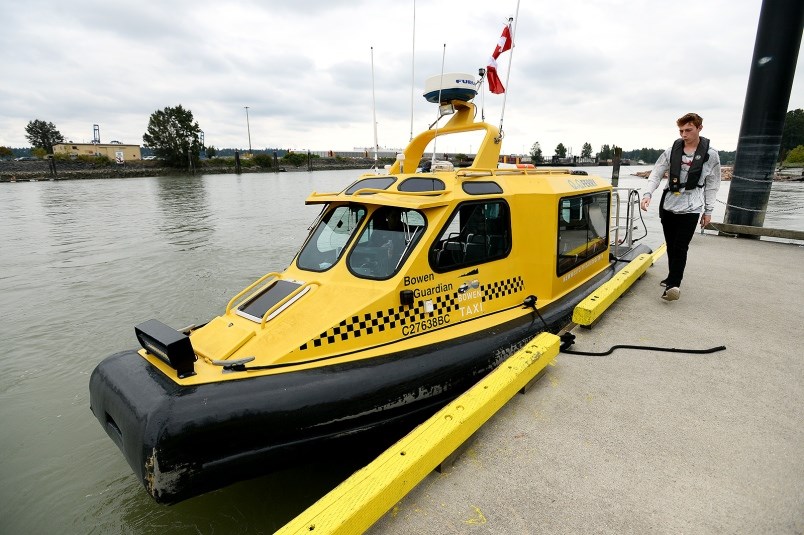The Q to Q ferry is resuming sailings earlier than previously anticipated.
In response to COVID-19 public health orders, the city suspended ferry service been Queensborough and Quayside in March. The Q to Q ferry service had been expected to be out of service until 2021 because of social distancing requirements and budget challenges, but the city has come up with a plan that would allow it to sail again starting on Thursday, Nov. 12.
“We are very pleased to be getting the Q2Q ferry service up and running again. We know it has been a service that many in the community, particularly in Queensborough have come to rely upon,” said Mayor Jonathan Cote. “As the city has worked through our new health protocols and the city’s financial challenges have stabilized this fall, council felt it was an important time to reintroduce this important transportation link in our city.”
Cote said he’s pleased staff have been able to develop a “safe and robust plan” to support the return of the Q to Q Ferry.
“This service is an important component of the city’s seven bold steps (on climate action) by providing an alternative to driving and enabling people who are walking or cycling to connect between downtown New Westminster and Queensborough,” he said in a news release. “It’s wonderful to be able to connect our city once again.”
The ferry service, launched in May 2018, has consisted of two 12-passenger water taxis operated by Bowen Land and Sea Taxi (BLaST). When service resume this week, a single vessel will be operating on weekdays (leaving each side every 30 minutes between 6 and 9 a.m. and 3 and 7 p.m.) and on weekends (leaving each side every 30 minutes between 11 a.m. and 5 p.m.)
“Staff have met with BLaST and have prepared a proposed plan to safely resume service with COVID-19 safety protocols,” said a Nov. 9 report to council. “Subject to council approval, the service could resume at a cost of approximately $42,000 per month.”
According to the city a comprehensive safety plan has been developed to ensure the safety and comfort of passengers and crew. This includes changes to payment methods and cleanings to high-touch areas between crossings and a full cleaning will after shifts and between crew changes.
Because of COVID-19, a number of protocols are being implemented, such as limiting the passenger load to a maximum of six passengers and two crew. Leashed dogs will still be permitted on the ferry, but they’re not allowed in the cabin and must remain on the exterior deck with their owner.
Masks are required to be worn by all crew and any passengers over the age of two.
“If passengers have not brought their own, they will be provided a disposable one at no cost,” said the staff report. “Due to the small space and the inability to safely distance, passengers unable to wear a mask will not be permitted.”
Hand sanitizer will be available for passengers and crew via a wall-mounted dispenser on the ferry, and passengers will be encouraged to sanitize upon boarding and/or disembarking. Increased cleaning of seats and high-touch areas is required as part of the reopening plan.
Full details about the service, payment options, COVID-19 protocols and the safety plan will be posted at www.newwestcity.ca/qtoq.
“Subject to council approval, the ferry could resume limited service in mid-November, with modification to schedules and safety procedures,” said the staff report. “Resuming the Q to Q Ferry would result in an increase in the city’s operating deficiency and a further reduction to reserves.”
According to the report, the net operating costs are estimated at $60,000 to Dec. 31, 2020 which includes payments to BLaST, a $5,000 monthly fee for a contractor to support the service on the city’s behalf and a 30% additional contingency to account for fulfilling COVID safety protocols, such as signage, communication and additional crew, as well as start-up costs to equip the vessel and docks with items such as hand sanitizer dispensers, fare boxes, plastic shielding around the skipper’s station, and cleaning and hygiene supplies.



